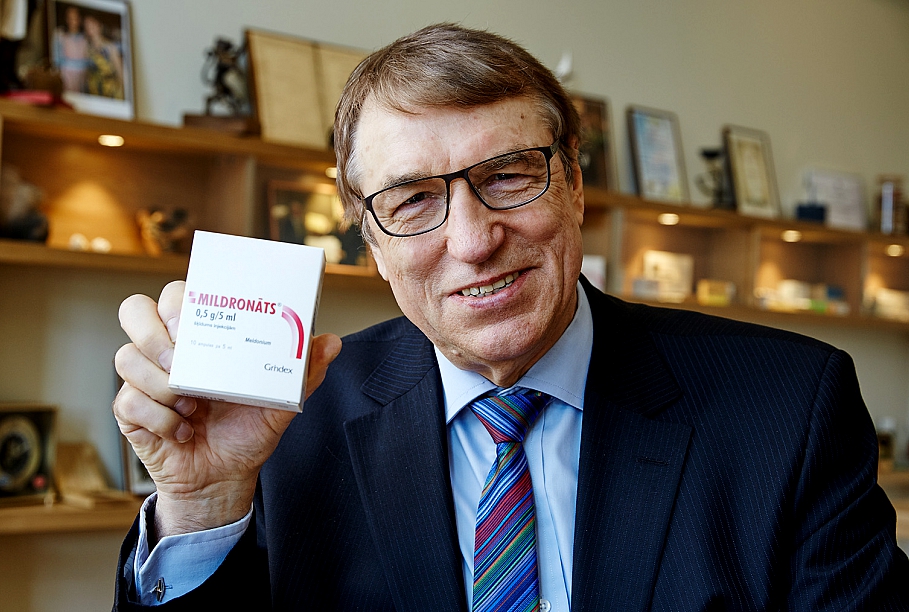Latvian #inventor Ivars Kalvins nominated for his inventions, the mildronate heart medication & others #VOTE #EIA15 https://t.co/zDXHjPAZPe
— EuropeanPatentOffice (@EPOorg) April 29, 2015
Named as a candidate for the Lifetime Achievement award in the EPO’s Medicine/Biochemistry sector, Kalviņš led the laboratory work of the Department of Medicinal Chemistry at the Latvian Institute of Organic Synthesis in developing the anticancer drug Belinostat, neuroprotectant Neramexane, anti-inflammatory compound OX-MPI and heart medication Mildronate.
The public is invited to learn more about Kalviņš breakthrough work and participate in selecting the award-winner by voting HERE.
Patented inventions from Kalvins’ laboratory have been licensed and made available to patients by international pharmaceutical companies including Prolifix Ltd, Biolipox, Merz Pharma GmbH, and Grindeks.
Societal benefit
The targeted use of natural compounds – as opposed to artificially created chemicals – is the foundation of Kalvins’ approach. He successfully brought to market drugs based on natural compounds to treat and prevent strokes, tinnitus, heart attacks, Alzheimer disease, as well as chronic pain and inflammation.
Kalvins’ inventions have proven especially beneficial for the prevention and treatment of ischemic heart disease and stroke, currently the world’s topmost causes of death with 7.4 million and 6.7 million victims in 2012, respectively, according to the World Health Organization (WHO).
Economic benefit
Kalvins’ biggest success story to date is meldonium, medicinal name Mildronate, an efficient drug against heart disease. Manufactured and marketed by Latvian pharmaceuticals company Grindeks, Mildronate ranks among Latvia’s most successful medical exports: it generated an export turnover of around €60–70 million in 2013, with a share of 0.6% to 0.7% of all Latvian exports.
Founded in 1991, publicly listed company Grindeks now employs around 1000 people and in 2013 reported revenues of €118.5 million – the lion’s share from sales of Mildronate. Other breakthroughs include the anti-cancer drug Belinostat, approved by the FDA in 2014 and licensed by US pharmaceutical company Spectrum. Kalvins also developed the neuroprotectant Neramexane licensed by Merz Pharmaceuticals, currently undergoing phase III clinical trials for treatment of Alzheimer disease, and the anti-inflammatory OX-MPI, currently advanced into clinical practice by Orexo and Boehringer Ingelheim.
All of Kalvins’ breakthrough inventions are based on a similar principle: the potential of chemicals to trigger a desired response within the human body. The right chemicals administered at the right dosage can serve as an “off switch” to stop a damaging cycle and re-establish the natural balance within the human body.
At age 67, Kalvins has published 650 academic papers and contributed to more than 215 patents in the field of biomedicine. His tireless work on “immunochemistry” helped to establish his Department of Medicinal Chemistry as an internationally connected think tank for pharmaceutical research.






























